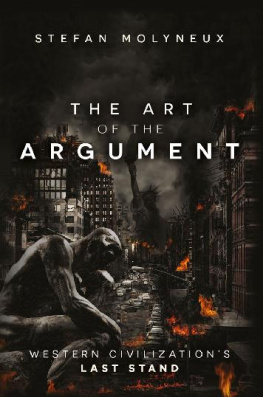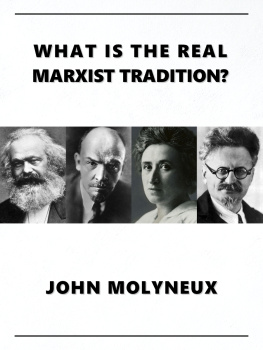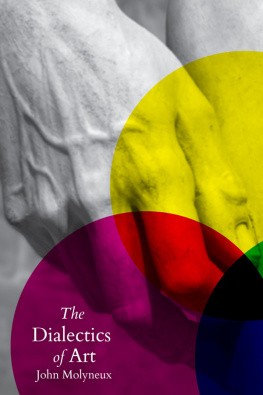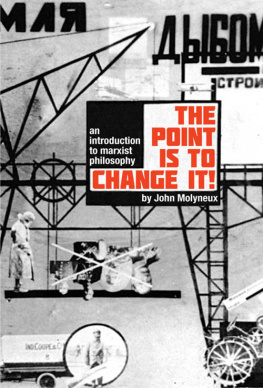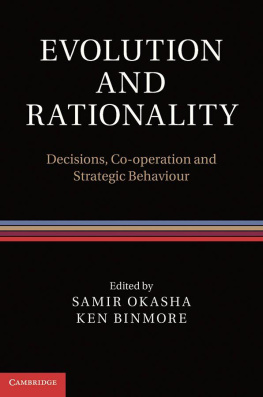Stefan Molyneux - Universally Preferable Behaviour, A Rational Proof of Secular Ethics
Here you can read online Stefan Molyneux - Universally Preferable Behaviour, A Rational Proof of Secular Ethics full text of the book (entire story) in english for free. Download pdf and epub, get meaning, cover and reviews about this ebook. year: 0, publisher: Freedomain Radio, genre: Religion. Description of the work, (preface) as well as reviews are available. Best literature library LitArk.com created for fans of good reading and offers a wide selection of genres:
Romance novel
Science fiction
Adventure
Detective
Science
History
Home and family
Prose
Art
Politics
Computer
Non-fiction
Religion
Business
Children
Humor
Choose a favorite category and find really read worthwhile books. Enjoy immersion in the world of imagination, feel the emotions of the characters or learn something new for yourself, make an fascinating discovery.

- Book:Universally Preferable Behaviour, A Rational Proof of Secular Ethics
- Author:
- Publisher:Freedomain Radio
- Genre:
- Year:0
- Rating:4 / 5
- Favourites:Add to favourites
- Your mark:
- 80
- 1
- 2
- 3
- 4
- 5
Universally Preferable Behaviour, A Rational Proof of Secular Ethics: summary, description and annotation
We offer to read an annotation, description, summary or preface (depends on what the author of the book "Universally Preferable Behaviour, A Rational Proof of Secular Ethics" wrote himself). If you haven't found the necessary information about the book — write in the comments, we will try to find it.
Universally Preferable Behaviour, A Rational Proof of Secular Ethics — read online for free the complete book (whole text) full work
Below is the text of the book, divided by pages. System saving the place of the last page read, allows you to conveniently read the book "Universally Preferable Behaviour, A Rational Proof of Secular Ethics" online for free, without having to search again every time where you left off. Put a bookmark, and you can go to the page where you finished reading at any time.
Font size:
Interval:
Bookmark:
Universally
Preferable
Behaviour
A Rational Proof of Secular Ethics
Stefan Molyneux, MA Host, Freedomain Radio.
For my beloved wife Christina, who teaches me all that is true, and shows me everything that is possible...
I would like to thank the listeners of Freedomain Radio, whose passion, generosity and participation has made this book - and all the books to come - possible. Thank you for the gift of this time.
Thanks also to my most excellent reviewers and proofreaders: Greg Gauthier, Jake Desyllas, Daniel Roncari and Jason Smith.
Any errors that remain are, of course, solely my responsibility.
Freedomain Radio is one of the most popular philosophy podcasts on the Internet, and was a Top 10 Finalist in the 2007 Podcast Awards.
Please visit Freedomain Radio at www.freedomainradio.com for more free podcasts, videos - as well as a thriving message board.
Universally Preferable Behaviour: A Rational Proof of Secular Ethics, Copyright 2007 by Stefan Molyneux. All rights reserved. Printed in the United States of America. No part of this book may be reproduced in any manner whatsoever without written permission except in the case of brief quotations embodied in critical articles or reviews. For more information, please visit www.freedomainradio.com .
The Freedomain Library, Volume 2
Version 1.0, October 2007
In many fairy tales, there lives a terrible beast of stupendous power, a dragon or a basilisk, which tyrannizes the surrounding lands. The local villagers tremble before this monster; they sacrifice their animals, pay money and blood in the hopes of appeasing its murderous impulses.
Most people cower under the shadow of this beast, calling their fear prudence, but a few - drunk perhaps on courage or foolhardiness - decide to fight. Year after year, decade after decade, wave after wave of hopeful champions try to match their strength, virtue and cunning against this terrible tyrant.
Try - and fail.
The beast is always immortal, so the villagers cannot hope for time to rid them of their despot. The beast is never rational, and has no desire to trade, and so no negotiations are possible.
The desperate villagers' only hope is for a man to appear who can defeat the beast.
Inevitably, a man steps forward who strikes everyone as utterly incongruous. He is a stable boy, a shoemaker's son, a baker's apprentice - or sometimes, just a vagabond.
This book is the story of my personal assault on just such a beast.
This beast is the belief that it is impossible to define an objective, rational, secular and scientific ethical system. This beast is the illusion that morality must forever be lost in the irrational swamps of gods and governments, enforced for merely pragmatic reasons, but forever lacking logical justification and clear definition. This beast is the fantasy that virtue, our greatest joy, our deepest happiness, must be cast aside by secular grown-ups, and left in the dust to be pawed at, paraded and exploited by politicians and priests - and parents. This beast is the superstition that, without the tirades of parents, the bullying of gods or the guns of governments, we cannot be both rational and good.
This beast has brought down many great heroes, from Socrates to Plato to Augustine to Hume to Kant to Rand.
The cost to mankind has been enormous.
Since we have remained unable to define a rational system of universal morality, we have been forced to inflict religious horror stories on our children, or give guns, prisons and armies to a small monopoly of soulless controllers who call themselves the state.
Since what we call ethics remains subjective and merely cultural, we inevitably end up relying on bullying, fear and violence to enforce social rules. Since ethics lack the rational basis of the scientific method, morality remains mired in a tribal war of bloody mythologies, each gang fighting tooth and nail for control over people's allegiance to virtue.
We cannot live without morality, but we cannot define morality objectively - thus we remain eternally condemned to empty lives of pompous hypocrisy, cynical dominance or pious slavery.
Intellectually, there are no higher stakes in the world. Our failure to define objective and rational moral rules has cost hundreds of millions of human lives, in the wars of religions and states.
In many ways, the stakes are getting even higher.
The increased information flow of the Internet has raised the suspicions of a new generation that what is called virtue is nothing more - or less - than the self-serving fairy tales of their hypocritical elders. The pious lies told by those in authority - and the complicity of those who worship them - are clearer now than ever before.
T ruth has been exposed as manipulation; virtue as control; loyalty as slavery, and what is called morality has been revealed as a ridiculous puppet show designed to trick weak and fearful people into enslaving themselves.
This realisation has given birth to a new generation of nihilists, just as it did in 19th century Germany. These extreme relativists reserve their most vitriolic attacks for anyone who claims any form of certainty. This postmodern generation has outgrown the cultural bigotries of their collective histories, but now view all truth as mere prejudicial assertion. Like wide-eyed children who have been scarred into cynical wisdom, they view all communication as advertising, all claims as propaganda, and all moral exhortations as hypocritical thievery.
Since we have no agreement on a cohesive, objective and rational framework for evaluating moral propositions, morality remains mired in mysticism, and its inevitable corollary of violence. Just as, prior to the Enlightenment, religious sects warred endlessly for control over the blades of the aristocracy, so now do competing moral mythologies war for control over the state, and all its machinery of coercion.
Thus morality remains, relative to modern science, just as medieval astronomy did to modern astronomy - a realm of imaginary mythology, enforced through storytelling, threats, compulsion and exploitation - which actively bars any real progress towards the truth.
This beast of relativistic ethics looms above us, preying on us, justifying taxation, imprisonment, censorship and wars. It enslaves the young in state schools and Sunday pews; it ensnares the poor in the soft gulags of welfare; it enslaves even the unborn in the bottomless wells of national debts.
As I wrote in my previous book, On T ruth: The Tyranny of Illusion, the most fundamental lie at the centre of unproven ethical theories is that such theories are always presented to children as objective and incontrovertible facts, when in truth they are mere cultural bigotries. The reason that scientists do not need a government or a Vatican is that scientists have an objective methodology for resolving disputes: the scientific method. The reason that language does not need a central authority to guide its evolution is that it relies on the free market of accumulated individual preferences for style and utility.
The reason that modern morality - and morality throughout history - has always had to rely first on the bullying of children, and then on the threatening of adults, is that it is a manipulative lie masquerading as a virtuous truth.
The truth is that we need morality; the lie is that gods or governments can rationally define or justly enforce it.
My goal in this book is to define a methodology for validating moral theories that is objective, consistent, clear, rational, empirical - and true.
I am fully aware that, at this moment, you will very likely be feeling a rising wave of scepticism. I fully understand that the odds that some guy out there on the Internet - the homeworld of crazies - has somehow solved the philosophical problem of the ages are not particularly high - in fact, they would be so close to zero as to be virtually indistinguishable from it.
Next pageFont size:
Interval:
Bookmark:
Similar books «Universally Preferable Behaviour, A Rational Proof of Secular Ethics»
Look at similar books to Universally Preferable Behaviour, A Rational Proof of Secular Ethics. We have selected literature similar in name and meaning in the hope of providing readers with more options to find new, interesting, not yet read works.
Discussion, reviews of the book Universally Preferable Behaviour, A Rational Proof of Secular Ethics and just readers' own opinions. Leave your comments, write what you think about the work, its meaning or the main characters. Specify what exactly you liked and what you didn't like, and why you think so.

